What is the performance of Macor ceramics in corrosive environments
In industries such as chemical, semiconductor, medical, and aerospace, many devices require long-term stable operation in strong acid, strong alkali, or high-temperature corrosive environments. Traditional metal materials are prone to corrosion, leading to shortened equipment life, decreased performance, and even failure. Macor ceramics (a machinable glass ceramic developed by Corning Incorporated in the United States) have become an ideal choice in corrosive environments due to their excellent corrosion resistance, high mechanical strength, and thermal stability.
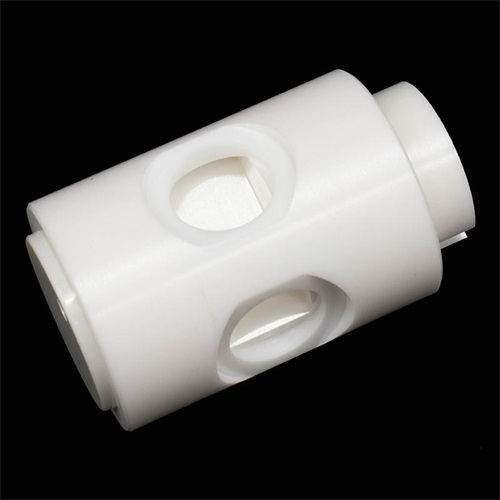
Basic characteristics of Macor ceramics
Macor ceramics are a composite material composed of fluorobiotite crystals and borosilicate glass phases, with the following core characteristics:
-Precision machining: Standard metal processing tools can be used for turning, drilling, and milling, reducing the manufacturing cost of complex components.
-High temperature resistance: The long-term working temperature can reach 800 ° C, and the short-term can withstand 1000 ° C.
-Electrical insulation: high resistivity, suitable for high voltage and high frequency environments.
-Low thermal expansion coefficient: similar to metals, reducing deformation or cracking caused by thermal stress.
-Vacuum sealing: suitable for semiconductors and vacuum equipment.
These characteristics make it particularly prominent in corrosive environments.
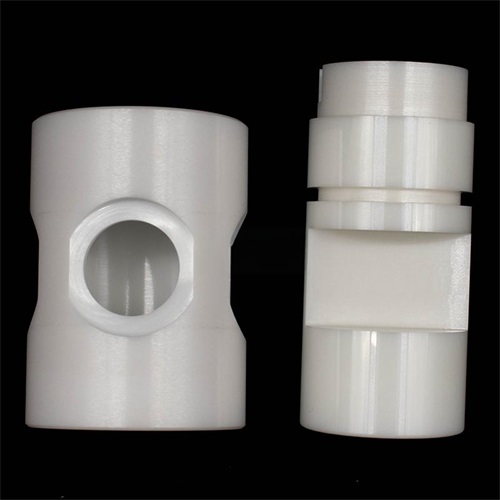
Corrosion resistance of Macor ceramics
acid and alkali resistance
Macor ceramics exhibit excellent stability to most acids, bases, and solvents, as follows:
Hydrochloric acid (HCl): Almost unaffected at low concentrations, still superior to metallic materials at high concentrations
Sulfuric acid (H ₂ SO ₄): resistant to concentrated sulfuric acid corrosion, superior to stainless steel and aluminum alloys
Nitric acid (HNO ∝): Stable at room temperature, use with caution at high temperatures
Hydrofluoric acid (HF): Will corrode, not recommended for contact
Sodium hydroxide (NaOH): excellent alkali resistance, suitable for strong alkali environments
Organic solvents (acetone, alcohol, etc.): almost unaffected
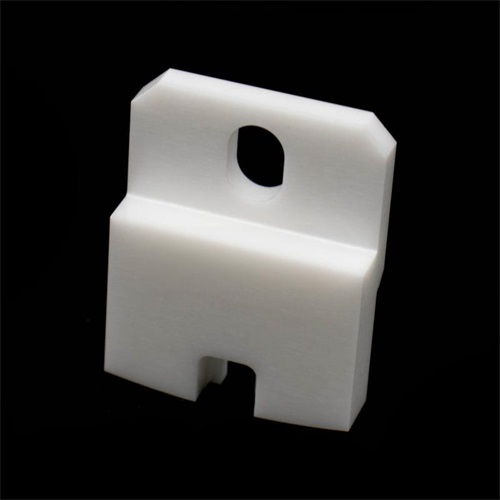
Compared to traditional materials:
-Metals (such as stainless steel and titanium alloys) are easily corroded by strong acids (such as hydrochloric acid and sulfuric acid), leading to pitting corrosion or stress corrosion cracking.
-Plastics (such as PTFE, PEEK): have good chemical resistance, but are prone to deformation or decomposition at high temperatures.
-Ordinary ceramics (such as alumina): corrosion-resistant but difficult to process, high cost.
Macor ceramics have achieved a good balance between corrosion resistance and machinability.
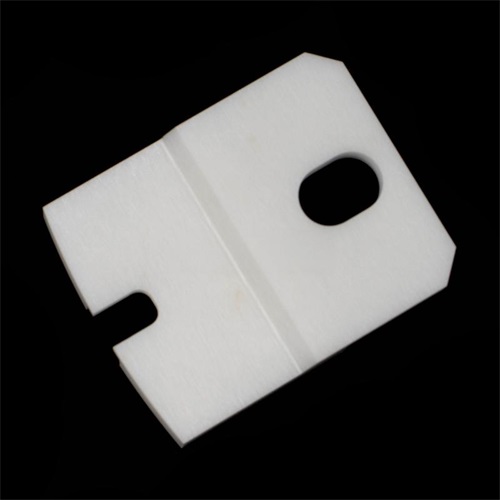
Stability under high temperature corrosion environment
Many corrosive media are more destructive at high temperatures, while Macor ceramics remain stable at high temperatures:
-Antioxidant properties: Will not oxidize below 800 ° C, suitable for high-temperature furnaces, burners, and other equipment.
-Thermal shock resistance: The low coefficient of thermal expansion makes it less prone to cracking during rapid temperature changes.
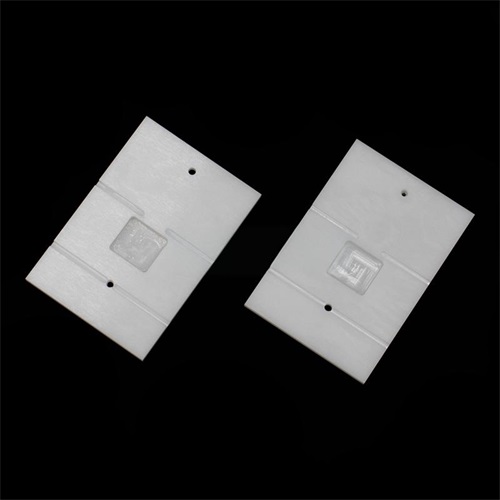
Application of Macor Ceramics in Corrosive Environments
Chemical industry
-Reactor lining: used in strong acid and alkali reaction environments to avoid metal corrosion and pollution products.
-Pump valve components: corrosion-resistant seals, bearings, extend equipment life.
Semiconductor and Electronics Industry
-Wafer processing equipment: acid and alkali resistant cleaning solution to avoid particle contamination.
-Vacuum chamber components: resistant to plasma corrosion, suitable for etching and coating equipment.
Medical and Biotechnology
-Surgical instruments: resistant to disinfectant (such as sodium hypochlorite) corrosion and can be sterilized at high temperatures.
-Implant device testing fixture: Long term stability testing under simulated body fluid environment (such as physiological saline).
EADS
-Rocket nozzle components: resistant to high temperature gas corrosion, reducing erosion problems.
-Satellite components: resistant to atomic oxygen corrosion in space environments.
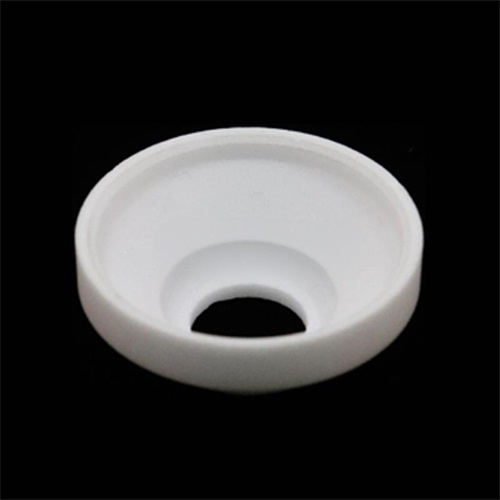
How does Macor ceramics address key issues in corrosive environments?
Solution to the problem of Macor ceramics
Metal parts are prone to corrosion and failure: acid and alkali resistance, extending equipment life
Plastic is not resistant to high temperatures: it can work stably at 800 ° C
Ordinary ceramics are difficult to process: CNC machine tools can be used for precision machining to reduce costs
Cracking caused by thermal stress: low thermal expansion coefficient, thermal shock resistance
Vacuum or high-pressure environment requirements: high sealing performance, suitable for semiconductor and vacuum equipment
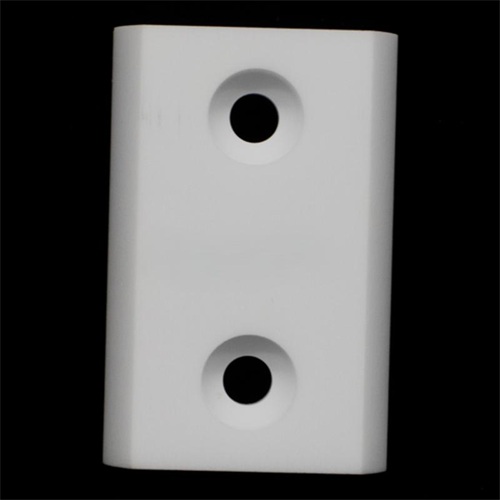
Macor ceramics have become an ideal material in corrosive environments due to their excellent corrosion resistance, high temperature stability, and processability. Whether in the chemical, semiconductor, medical, or aerospace fields, it can effectively solve the problem of traditional materials being prone to corrosion and failure, improving equipment reliability and service life.
For equipment that requires long-term operation in harsh chemical environments, Macor Ceramics provides a high-performance and cost-effective solution.
Brudeze Ceramics supplies and sells a wide range of high-quality quartz glass, including alumina ceramics, zirconia ceramics, silicon nitride ceramics, aluminum nitride ceramics, silicon carbide ceramics, boron carbide ceramics, bioceramics, machinable ceramics, etc. We can meet the customization requirements of various ceramic products.
PREVIOUS:What are the differences between Macor machinable ceramics and traditional ceramics
NEXT:How does Macor machinable ceramic perform in a vacuum environment
CATEGORIES
LATEST NEWS
- Performance advantages of p...
- Petrochemical ceramic injec...
- Zirconia Ceramic Rod Custom...
- High-temperature resistance...
- What is the wear resistance...
- What is the hardness of cer...
- Aluminum oxide ceramic cust...
- What are the main aspects o...
- What are the mechanical pro...
- Thermal properties of zirco...
